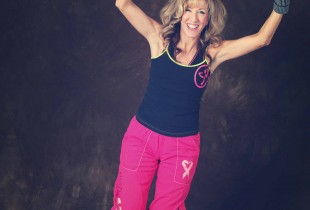By Natalie DeYoung
It started with a visit to the doctor’s office.
I had noticed a tightening in my chest while doing moving push-ups. Moving push-ups, in case you were unaware, are a special exercise in self-flagellation. Anyway, the tightening grew into pulling pain. Of course, being only halfway done with my workout, I stretched it out and then resumed. I needed to kill every calorie possible.
Unfortunately, the more push-ups I did, the worse the pain grew, until I could no longer move. Maybe I wasn’t done with my workout, but my body certainly was finished. With the level of incapacitation I experienced, I thought maybe I had popped a rib out of place, or tore a muscle.
“It’s muscle fatigue. You pulled a rib muscle, I can feel it here,” the doctor said, palpating the sore area.
“So, how often did you say you were doing high-intensity workouts?” she asked, returning to her laptop to take notes.
“Six days a week,” I replied sheepishly. I knew where this was headed.
She began asking me questions about how I viewed my body, how often I weighed myself, how many calories I consumed a day. Without her coming out and explicitly saying it, I could tell she was trying to ascertain whether or not I had an eating disorder.
As she questioned me about my body, my weight loss goals and my eating habits, I suddenly fought tears threatening my eyes. Until that moment sitting there on the table in the doctor’s office, I didn’t realize how upset I was about the weight I had gained the past year, the weight that would not come off with any amount of exercise or dieting tactics. How frustrated I was! Working so hard to fit back into my clothes only to see the scale go up every month.
She mentioned prescribing muscle relaxants, which I protested. “I’m an alcoholic,” I explained, trying not to sound more neurotic than I’m sure I already seemed. She nodded with understanding. Recovering alcoholics and muscle relaxants are a bad idea together.
When she suggested I try gentle yoga or walking, the dam burst. The torrent of tears would not be subdued, and I had a Good Long cry, an Ugly cry, complete with shoulders shaking and snot pouring from my nose.
I apologized, deeply embarrassed at my outburst. “I didn’t realize…I was that upset…about it,” I hiccupped, wiping my tears with a proffered tissue.
“No, it’s okay,” she said. “You know, people who have struggled with addiction tend to see the world a different way. You’re liable to look at yourself as a failure when something like this happens. But you’re not a failure. You’re human.”
Human? As in not perfect?
Then she said something that has stuck with me ever since:
“You need to learn how to give yourself grace.”
Grace. This had never occurred to me. As someone who did not struggle with her weight until adulthood, I saw my body as something to be beaten back into submission, not something worthy of grace.

She went on.
“You know, I’m not originally from L.A., and let me tell you – people here are not normal. Maybe, it’s being so close to Hollywood, but the idea that you must have this ‘perfect’ body is a fantasy that’s worse here than anywhere I’ve ever lived. There is no ‘perfect body.’ You have to start training your mind to believe that.”
Hearing her say those words, I felt a tiny flare of hope ignite. But I remained convinced that if could just drop twenty pounds, I’d be happy.
After I reluctantly promised to rest, I went home and cried some more, certain I would never be beautiful, would never again fit into my favorite jeans.
But then, I started wondering…what if she’s right? What if I need grace, not a workout?
Still sniffling, I remembered a blog post written by a writer I look up to, and I went to her website to reread it. She had written about practicing a new philosophy, which she called Operation Rad Bod. The idea behind Operation Rad Bod is radical body acceptance. In other words, loving your body as it is, without qualifiers. Not wishing it were more _____ or less _____ (fill in the blanks). This means stopping acts and words of self-hatred. Nurturing your body by eating a balanced diet and moving to feel good. Aiming for health, not a number on the scale. Living fully in your body, regardless of shape or size.
Despite wanting desperately to fit back into my favorite pair of jeans, I knew that since I couldn’t exercise anyway – heck, I could barely move at all! – I decided it wouldn’t hurt to be nicer to myself. I had a habit of thinking of myself in hateful terms, using descriptions like, “fatass,” “lard,” and just plain “ugly.” I wouldn’t say such a thing to a friend; why would I say it to myself?
And then, over the next few months of tentatively practicing Operation Rad Bod, I began asking myself other questions.
Why was I measuring my self-worth in such a limiting physical way? I am intelligent. I am an artist. I am kind. I am empathetic. Why did I not measure my beauty by those standards? Is someone less beautiful to me because she doesn’t have the perfect body? Mothers with stretch marks, grandmothers with crinkled skin – are they any less loved, any less beautiful?
And then, I got to the pivotal question:
Who gets to decide who is beautiful, anyway? Why can’t it be me?
I decided it was.
For more on Operation Rad Bod, you can find it on Rhea St. Julien’s blog, Thirty Threadbare Mercies.



